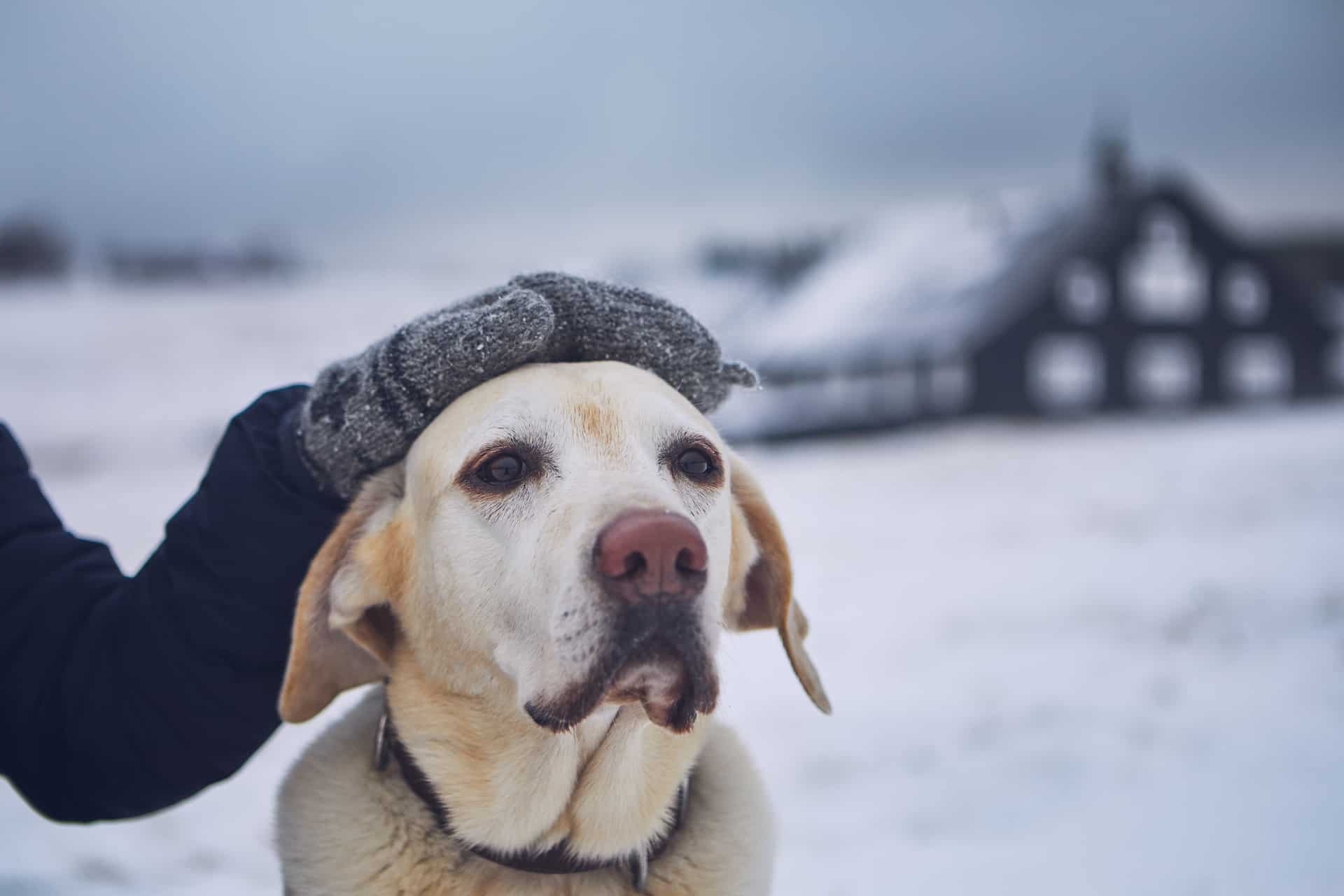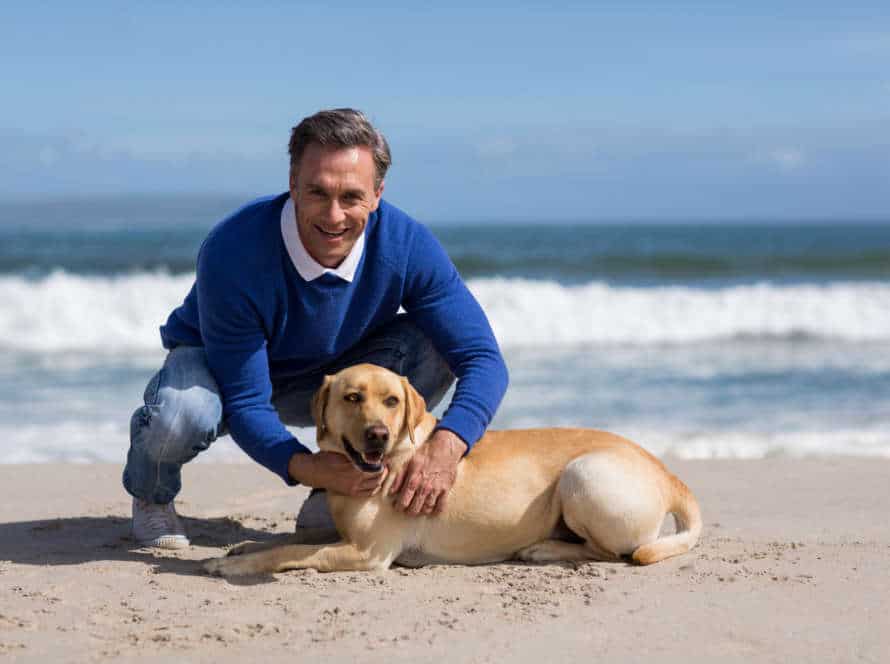Rescued Dogs: Overcoming Trust Issues Together
Rescued doggos often have trust issues due to their previous owners’ neglect or abuse. But with patience and love, these trust issues can be tackled! Here are some tips to help:
- Create a calm, safe space for your pup to feel secure.
- Set up a routine for feeding, exercising, and playtime – it helps build stability and predictability.
- Give treats, praise, and play as positive reinforcement to boost your pup’s trust and confidence.
- Respect your pup’s boundaries and don’t rush them.
- Be patient and consistent in building a strong, trusting bond. It takes time and effort, but the reward of a loving companion is priceless!
Understanding Trust Issues in Rescued Dogs
Trust and fear can be conflicting feelings when it comes to dogs. Rescued dogs may have gone through traumatic experiences. This can make it hard to trust in strange environments.
To build a connection with your rescued dog, you need to understand the trust issues they may have. Let’s look into what trust issues these dogs could have. Then, let’s work on them together.
Common trust issues in rescued dogs
Rescued dogs can have trust issues. These problems can show in different ways and make it hard for the dog to make strong relationships. Here are some common trust problems:
- Fearfulness – Rescued dogs may be scared of people or other animals, so it’s tough for them to mix.
- Separation Anxiety – If a dog has been abandoned or ignored, it may worry about being left alone.
- Aggression – If a dog has had bad experiences, it might act aggressively towards people or animals.
- Leash Reactivity – Dogs may be nervous of others on the leash, due to fear or anxiety.
It’s best to work with a professional. Patience, consistency and good reinforcement will help the rescued dog feel secure.
Causes of trust issues in rescued dogs
When it comes to rescued dogs, a traumatic past can lead to trust issues. Causes of trust issues can be:
- Abuse – Physical abuse or neglect can make a dog fearful or aggressive.
- Lack of socialization – Not exposed to different environments and people can make it hard to adapt.
- Changes in ownership – Being passed from owner to owner can make it hard to form attachments.
- Inconsistent treatment – Inconsistent or mistreatment can make a dog wary of humans.
But, with patience and love, rescued dogs can overcome these issues and form bonds with their new families.
Signs of trust issues in rescued dogs
Trust issues are quite common in rescued dogs, yet owners may not know the beginning hints of this behavioral issue. Here are a few signs which may mean your rescued pup has trust issues:
- Refusal to make physical contact with humans, even after some time.
- Fear aggression towards people, like growling, barking or lunging at anyone who gets close.
- A tendency to hide or retreat in strange places or events.
- Very attached to their owners or caretakers.
If your pup displays any of these signs, you need to be patient and to put in the hard work to help them overcome their trust issues. Training and socializing is essential to make them feel confident and relaxed in new situations. Remember, a rescued pup needs lots of love and patience to surmount their issues.
Building Trust with Your Rescued Dog
Bringing home a rescue pup can be a great joy! But it may come with its own set of problems. Building trust with a rescue dog is paramount for a good relationship. Yet, depending on their past, this could be tricky. So, let us explore strategies that can help build trust with your rescue pup!
Creating a safe environment for your dog
Creating a secure environment for your pup is important for constructing trust. This is especially true if you recently adopted a dog with trust matters. Here are some tips to make it happen:
- Offer a predictable routine. Dogs will benefit from a set schedule of eating, playing, and walking.
- Reward good conduct. Give your dog treats and compliments when he/she is reassuring and obedient.
- Keep your pet safe. Make sure your garden is secure for dogs and, when out and about, always use a leash.
- Provide a retreat. Set aside an exclusive area in the house where your pup can relax and feel secure, like a bed or crate.
- Be understanding. If your pup has trust issues, it may take a long time to build a strong bond. Be patient and respectful of their needs, and go at a speed that makes them feel comfortable.
Pro Tip: Forming trust with a rescued dog will require commitment and patience, but it can be an incredibly rewarding experience that can lead to a lifelong connection.
Building a bond with your dog
Creating a strong connection with your pup is key for a content & contented bond. This is especially true for rescued dogs with trust troubles because of earlier days. Here are some methods to help you build trust with your newly adopted pup:
- Respect their space: Let your pooch come to you when they feel ready. Don’t push yourself on them or give them too much attention.
- Make a schedule: Dogs love routine. It gives them a sense of security & helps them feel safe.
- Use positive rewards: Praise your pooch for good behaviour with treats, toys, & positive attention.
- Exercise together: Working out benefits your pup’s physical & mental health.
- Be patient: Gaining trust takes time, so be tolerant & take it slow.
By following these tips, you’ll gradually build a bond of trust with your rescued pup & have a kind & meaningful relationship.
Positive reinforcement training methods
Positive reinforcement is a great training method. It rewards good behaviour instead of punishing bad behaviour. This is a great way to build trust with a rescued dog and help them overcome past trust issues. Here are some tips:
- Use treats, verbal praise, and playtime to reward good behaviour like sitting on command or coming when called.
- No punishment, yelling, or physical corrections. These can cause fear and anxiety in your dog.
- Be consistent with training. Reward your dog immediately after good behaviour.
- Take a gentle and patient approach with your rescued dog. They may have had a history of abuse or neglect, making them scared of humans.
- If you stay consistent with positive reinforcement, it can help your rescued dog trust you and be more comfortable in their new home.
Common Challenges When Overcoming Trust Issues
Us who have a rescue pup in our home, we get it – adopting a dog brings joy, but challenges too. One of the hardest? Trust. Here, we’ll talk about typical issues when trying to build trust with rescued dogs.
Patience and persistence
Patience + persistence = key to overcoming trust issues with rescued dogs. Common challenges include fear of humans, unfamiliar environments, and past trauma.
Patience is a must. Let pup adjust at their own pace with positive reinforcement training to build trust. Persistence is key. Training can take weeks, months, even years.
Tips:
- Establish routine
- Use treats/praise to reward good behavior
- Let pup come to you on their terms
Over time, bond will grow, leading to a positive + fulfilling relationship.
Pro Tip: Adopting a rescued dog with trust issues is a challenge, but rewarding. Patience, persistence, positive reinforcement can help your furry friend overcome fears + become a happy + loving companion.
Fear and anxiety in rescued dogs
Rescued dogs may have fears and anxieties due to past traumas and instability. Here are some common struggles with trust issues and how to solve them.
Fear of humans: Your pup may have had bad experiences with people. Start with low-pressure encounters. Sit in the same room and offer treats. Let your dog approach you at their own speed. They will start to connect you with good times and trust you more.
Separation anxiety: Pups that were abandoned may have this. Make a safe and comforting spot for them. Give them toys and treats when you go. Increase the time away slowly.
Noise sensitivity: Loud sounds can be scary. Make a quiet and secure place. Give them comforting objects like beds or blankets. Play white noise or music to block out loud sounds.
Pro tip: Approach your pup with patience, empathy, and respect. With effort and love, they can overcome trust issues and do great in their new home.
Regaining trust after a setback
Gaining back trust after a setback can be hard. Be it with a person or a rescued pooch. Knowing the common issues with trust can help to mend the bond. Here are some of the issues when regaining trust:
- Fear of being exposed.
- Scared of being hurt again.
- Losing control.
- No communication.
To sort these out, it’s crucial to go slow, converse openly and set some boundaries. With rescued dogs, create a safe and comfy environment and use positive reinforcement training. Trust is not built in a day, but with dedication and understanding, it is attainable.
Helpful Tips for Overcoming Trust Issues
Trust is key for a successful bond with a rescued pup. Unfortunately, many dogs have had a rough past, leaving them scared and untrusting of people. So, to help them feel safe, it’s important to understand their issues and take the right steps.
Here are some useful tips to handle trust issues and help rescued dogs get over them:
Slow introductions to new people and places
Aid dogs with trust issues feel more secure with slow introductions to new people and places. Here are tips to help build a better relationship:
- Give your dog ample time and space to adjust to new people and surroundings.
- Utilize positive reinforcement to create trust and confidence.
- Introduce your pup to one person or animal at a time. Keep an eye out for fearful or aggressive signs.
- Progressively extend the length and complexity of new experiences. Praise and treats for good behavior.
- Patience, empathy, and consistency are vital for building a lasting bond with your rescued dog.
Building a routine to create a sense of security
Creating a daily routine is key for rescued dogs with trust issues. Here’s how to establish one:
- Have a fixed schedule: Feed them, walk them, play with them and put them to bed at regular times.
- Train and socialize them: Use positive reinforcement and spend time with other dogs or people.
- Provide a safe space: A place in your home where they can go when anxious or fearful.
- Exercise: Walks and play sessions help calm anxious dogs.
- Patience and love: Trust takes time, so stay committed to your routine.
These tips will help your furry friend adjust to their new home and gain security.
Seeking professional help
Gaining professional help is an effective approach to tackling trust issues with your rescued pup. An experienced dog trainer or animal behaviorist can provide helpful advice and tools to make your dog feel secure in its new home.
To find the perfect pro:
- Research: Look for a certified and knowledgeable trainer or animal behaviorist who uses positive training methods.
- Get advice: Ask friends, family, or your local shelter or rescue service for recommendations.
- Consultation: Set up a meeting to talk about your dog’s troubles and what you want from the training.
- Follow-up: Be ready to stick to training and attend follow-up sessions to keep track of your pup’s progress.
Pro Tip: Remain patient and consistent with your training and prioritize your dog’s comfort and safety. With the correct expert help and lots of love and patience, you and your rescued pup can overcome trust issues together.
Success Stories: Overcoming Trust Issues
Rescue dogs and their owners have amazing success stories. The process to overcome trust issues is long. But, the rewards are great! Patience, understanding, and training are key. We will show you inspiring stories of rescue dogs conquering trust issues.
Personal stories of rescued dogs overcoming trust issues
Tales of saved dogs conquering trust problems are moving and motivating. They show the strength of these animals and the incredible power of consideration and perseverance.
Take Jake, a timid and worried border collie spared from a harsh proprietor. With the help of a caring foster family who bit by bit constructed trust and showed him new abilities, Jake bloomed into a sure and loving sidekick.
Or Luna, a vagrant dog who endured disregard and malnourishment. Despite her underlying dread and suspiciousness, Luna figured out how to trust her new proprietor through positive support preparing and play treatment. She now appreciates long strolls, embraces, and even deftness preparing.
These and numerous different accounts of success advise us that rescued dogs can defeat their past injury and figure out how to trust people once more. All it takes is patience, steadiness, and respect for their individual needs and characters.
Lessons learned and challenges faced
Adopting a rescued dog can be a rewarding experience. But it comes with its own set of challenges – especially if the pup has trust issues. These experiences can teach valuable lessons to their owners and bring them even closer to their pet.
It’s important to remember to be patient. Trust issues don’t disappear overnight. With time and positive reinforcement, a dog can overcome these issues and build a loving bond with their new owner. Providing a stable and secure environment helps your pet regain confidence and slowly learn to trust you.
Each dog is unique and may need a different approach. Socialization with other dogs may help some, while others may need to be trained with positive reinforcement. Understanding your pup’s specific needs helps support them in the best way possible and helps them overcome their trust issues.
Challenges like fear, anxiety, and aggression pose significant hurdles. But with consistency and patience, these issues can be addressed. Adopting a troubled dog brings immense joy and fulfillment to the pet and the owner alike.
Encouragement for those in the midst of overcoming trust issues with their rescued dog.
Trust issues with rescued dogs? Difficult, yes – but not impossible! With patience, consistency and love, you can rebuild the bond. Just take a look at those success stories!
- “After 6 months of training and positive reinforcement, I could pet my pup without flinching!”
- “2 years of trust-building and now he follows me everywhere and cuddles every night!”
- “Introducing her to new people and environments helped her get over her fear of strangers – and now she loves going on walks!”
Remember, every dog is different. Be patient, consistent, and seek help from a professional trainer if needed.
Frequently Asked Questions
Q: How long does it take for a rescued dog to overcome trust issues?
A: It depends on the individual dog and their past experiences, but with patience and consistent positive reinforcement training, most dogs can begin to trust and bond with their new family within a few weeks to several months.
Q: Can all rescued dogs overcome trust issues?
A: While every dog is different, most rescued dogs can overcome trust issues with proper care and training. However, it may take longer for some dogs than others.
Q: What are some common signs of trust issues in rescued dogs?
A: Some common signs include fear or avoidance of humans, excessive shyness or timidness, reluctance to be petted or touched, and hiding or cowering in response to loud noises or unfamiliar stimuli.
Q: How can I earn the trust of a rescued dog?
A: It’s important to approach a rescued dog with patience, understanding, and compassion. Offering treats, using positive reinforcement, and establishing a consistent routine can also help the dog feel more comfortable and secure in their new environment.
Q: Should I adopt a rescued dog if I don’t have experience with trust issues?
A: While it’s important to be aware of the challenges that come with adopting a rescued dog with trust issues, there are many resources available to help new owners learn how to provide the care and training necessary to help their new pet feel safe and secure.
Q: Can professional training help a rescued dog overcome trust issues?
A: Yes, working with a professional dog trainer who has experience with rescued dogs can be a valuable resource for helping your pet overcome trust issues and develop healthy behaviors.







